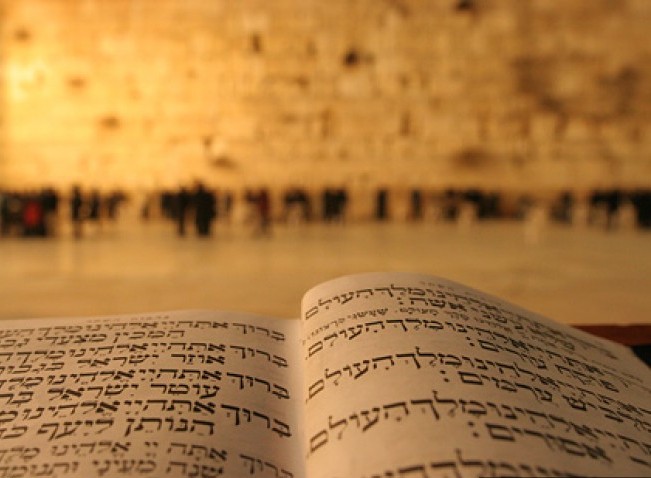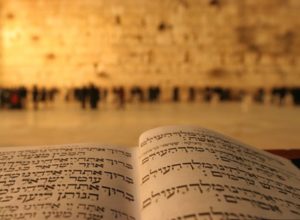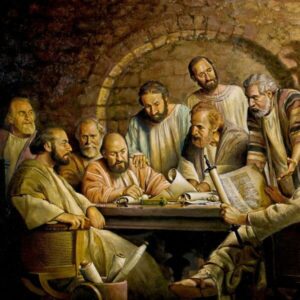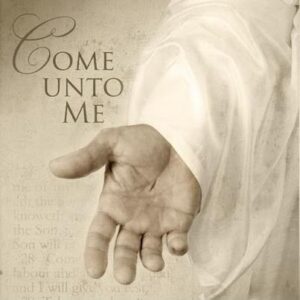

I’m concerned and perplexed by the resurfacing of questions within the church that were asked and answered many years ago. Should Gentile Christians observe the Jewish Sabbath? Is it wrong to gather for public worship on Sunday? Is it necessary to abstain from pork, shellfish, or other foods the dietary laws of the Old Testament forbids? Am I permitted to wear clothing that mixes materials such as cotton and wool? What about the hundreds of other laws and customs kept by the Jews?
The most challenging issue faced by the early church was how to merge Jewish and Gentile converts into one body. This was no small matter. This issue became so serious in the first years of the church that it threatened to derail the church’s progress.
 Many Jewish converts to Christianity insisted that Gentile believers abide by centuries-old Jewish customs and some or all of the Old Testament covenants. Disagreement about these issues escalated to serious conflict and even physical persecution. The persecution of Christians did not only come from the leaders of Judaism or the Roman Empire. Some persecution of Gentile Christians came from their own Jewish brothers in Christ.
Many Jewish converts to Christianity insisted that Gentile believers abide by centuries-old Jewish customs and some or all of the Old Testament covenants. Disagreement about these issues escalated to serious conflict and even physical persecution. The persecution of Christians did not only come from the leaders of Judaism or the Roman Empire. Some persecution of Gentile Christians came from their own Jewish brothers in Christ.
The greatest detriment to the infant church by this ideological conflict was it distracted the church from its ultimate purpose. Instead of concentrating on the Great Commission, the church was drawn into a quagmire of internal dissension. As is so often the case (even today), this internal conflict robbed the church of its focus.
Even the apostles were drawn into the divisive conflict. At one point Peter and Paul had a heated, face-to-face argument. Paul rebuked Peter for his two-facedness at Antioch! When Peter was in Antioch visiting the Gentile church, he ate with them, enjoying their brotherly fellowship. But when James and a delegation of Jews from Jerusalem arrived, Peter suddenly changed his behavior. He got up from the table and sat with the Jews, fearing their condemnation for him eating with Gentiles. Other Jewish Christians who had been fellowshipping with the Gentile believers at Antioch followed Peter’s poor example. Even Barnabas was drawn into the conflict and followed, in Paul’s words, “Peter’s hypocrisy” (Galatians 2:11-21).
Paul’s stern words to Peter were a reminder that we are justified by the work of Christ, not by our adherence to the Law:
Galatians 2:14-21: When I saw that they were not acting in line with the truth of the gospel, I said to Cephas in front of them all, “You are a Jew, yet you live like a Gentile and not like a Jew. How is it, then, that you force Gentiles to follow Jewish customs?…know that a person is not justified by the works of the law, but by faith in Jesus Christ. So we, too, have put our faith in Christ Jesus that we may be justified by faith in Christ and not by the works of the law, because by the works of the law no one will be justified…I do not set aside the grace of God, for if righteousness could be gained through the law, Christ died for nothing!” (NIV)
Paul’s rebuke of Peter’s hypocrisy did not resolve the issue. The challenges of merging Jewish and Gentile converts were widespread. Jewish Christians in Judea were teaching that all Christian converts needed to be circumcised. Paul and Barnabas had “no small dissention and disputation with them” (Acts 15:2). A sect of believers in Jerusalem were likewise teaching that Gentile converts should be circumcised and were commanding the converts to keep the Law of Moses.
This issue had to be settled. The apostles needed to address these questions that had the potential to derail the progress and unity of the church. The apostles and elders met with Paul and Barnabas to consider the matter. Peter rose up to speak:
Acts 15:10: 10 Now therefore why tempt ye God, to put a yoke upon the neck of the disciples, which neither our fathers nor we were able to bear? (KJV)
Paul and Barnabas also addressed the counsel. After much intense discussion and prayer, James, the  pastor of the Church of Jerusalem, under the inspiration of the Holy Ghost, spoke words of wisdom that became the official ruling of the entire apostolic counsel:
pastor of the Church of Jerusalem, under the inspiration of the Holy Ghost, spoke words of wisdom that became the official ruling of the entire apostolic counsel:
Acts 15:19,20: 19 Wherefore my sentence is, that we trouble not them, which from among the Gentiles are turned to God: 20 But that we write unto them, that they abstain from pollutions of idols, and from fornication, and from things strangled, and from blood. (KJV)
There was a consensus and a witness in the Sprit that this ruling was the Will of God. The apostles wrote an official letter that answered the question, “What portions of the Law of Moses should be kept by Gentile converts?”
Acts 15:23-29 – 23 And they wrote letters by them after this manner; The apostles and elders and brethren send greeting unto the brethren which are of the Gentiles in Antioch and Syria and Cilicia: 24 Forasmuch as we have heard, that certain which went out from us have troubled you with words, subverting your souls, saying, Ye must be circumcised, and keep the law: to whom we gave no such commandment… 27 We have sent therefore Judas and Silas, who shall also tell you the same things by mouth. 28 For it seemed good to the Holy Ghost, and to us, to lay upon you no greater burden than these necessary things; 29 That ye abstain from meats offered to idols, and from blood, and from things strangled, and from fornication: from which if ye keep yourselves, ye shall do well. Fare ye well. (KJV)
What is as striking as the requirements mentioned is the absence of others. They did not mention circumcision. They did not mention keeping the Sabbath. There is no mention of adhering to the dietary laws of the Old Testament (other than abstaining from meat that had been offered to idols, from blood, and from things strangled). There is no mention of observing the feasts or any number of other Jewish customs and oral traditions.
[pullquote]Those demanding the keeping of the Sabbath were trying to put upon Gentile converts demands they themselves could not keep.[/pullquote]
Equally as remarkable is the fact that James was the one writing this ruling. He was the pastor of the mostly Jewish Christian church in Jerusalem. It is likely that many of the antagonists of this issue were members of James’ church. As far as his personal life, James chose stay true to his Jewish roots observing all the Old Testament law to the best of his ability. Yet in this ruling, James feels led of the Spirit to impose only the four items mentioned above upon the Gentile converts.
The glaring absence of any mention of Gentile converts keeping the Sabbath can only be interpreted one way. The apostles rightly understood that keeping the Sabbath as instituted in the Old Testament was a covenant with Israel, not with Gentile converts. They understood what is reiterated over and over in the Old Testament – the Sabbath was for “My people, Israel:”
Exodus 31:16-17: 16 Wherefore the children of Israel shall keep the sabbath, to observe the sabbath throughout their generations, for a perpetual covenant. 17 It is a sign between me and the children of Israel for ever: (KJV)
There is no mention in Acts of the Gentile church gathering together to worship on the Sabbath. Certainly the apostles went to the synagogue on the Sabbath to preach Christ because it was a wise evangelistic strategy. There is clear evidence, however, of the church gathering on the first day of the week for worship and preaching (Acts 20, 1 Cor. 16). Throughout the epistles there is never a command for the church to gather together for corporate worship on any particular day of the week.
As a New Testament church, we observe all of the Ten Commandments. We do “remember the Sabbath to keep it holy.” We just don’t do it in the same manner that the Jews did in the Old Testament. In Matthew 11, Jesus said:
Matthew 11:28–30: 28 Come unto me, all ye that labour and are heavy laden, and I will give you rest. 29 Take my yoke upon you, and learn of me; for I am meek and lowly in heart: and ye shall find rest unto your souls. 30 For my yoke is easy, and my burden is light. (KJV)
It is crucial to understand the context of this passage. Jesus was rebuking the Jewish cities of Chorazin, Bethsaida, and Capernaum. He said if the mighty works that had been done in your cities had been done in the Gentile cities of Tyre, Sidon, and Sodom, they would already have repented. It was an indictment of their staunch religious tradition and resistance to the message of Christ.
It is in that context that Jesus says, “Come unto me, all ye that labour and are heavy laden.” He is speaking to Jews who have struggled under the heavy burden of the Law. But He says My yoke is easy. The yoke of the Law is not. My burden is easy. The burden of Moses is not.
 Come unto Me and find rest for your souls. Jesus said, “I will give you rest.” What’s fascinating about this verse is its reference to the Sabbath. The word for “rest” in this passage is the Greek equivalent of the Old Testament Hebrew word for “Sabbath.”
Come unto Me and find rest for your souls. Jesus said, “I will give you rest.” What’s fascinating about this verse is its reference to the Sabbath. The word for “rest” in this passage is the Greek equivalent of the Old Testament Hebrew word for “Sabbath.”
Are you tired of laboring under the heavy yoke of trying to measure up to the Law? Jesus said come to Me. I will give you “Sabbath.” I will be your Sabbath. He said I will give you rest.
Jesus is our Sabbath. He has instituted a new and better covenant. We have, by faith, laid down the old yoke and taken up Christ’s yoke. The rest we enjoy is no longer about resting on a particular day of the week. In Christ we find an eternal rest for our souls. There is no longer a need to observe the Sabbath of the Old Testament. The heavy burden of trying to measure up to the demands of the law and the keeping of the Sabbath has been cast on Him. We trust in His works now, not our own.
[pullquote]Jesus is our Sabbath![/pullquote]
We remember the Sabbath and keep it holy in a greater sense than observing a list of do’s and don’ts for a day of the week. We honor the Sabbath by declaring that in Christ the Law is fulfilled and complete. In Him we cease from trying to find righteousness by observing Sabbaths, feasts, holy days, or dietary laws. The Law was the shadow. Praise God, Jesus is the substance! The Law was a schoolmaster to point us to Christ. And we have found Him!
It is clear from the Acts record that the earliest Jewish Christians gathered to worship on the Sabbath. The move toward Sunday public worship began with the infusion of Gentile converts. There was little controversy about matters of the Law or the Sabbath until Gentiles were added to the church. It was the grafting in of Gentile Christians and questions concerning what Jewish laws and customs they should keep which sparked controversy. As more and more Gentiles were added to the church, the shift toward Sunday public worship gained momentum.
What prompted that move was the desire to celebrate the Resurrection of Jesus and the meeting He had with His disciples, which both occurred on the first day of the week, not the Sabbath. It’s likely that Gentile Christians also gravitated toward Sunday worship to distinguish themselves as a religion distinct from Judaism. In the first years of the church, all the believers in Christ were Jewish. At that time they were simply considered another sect of Judaism. They were not called Christians until Acts 11 in Antioch. And so a move toward Sunday worship was a way to distinguish themselves as Christian.
By the time the Book of Acts and the epistles were written, Sunday worship was the norm among Pauline churches. By the time John’s book of Revelation was written, we see the term, “The Lord’s Day,” which is a clear reference to Sunday. Early church history is clear: By the time the church became predominantly Gentile, Sunday was commonly their day of public worship. It’s important to note, however, that Paul did not institute Sunday worship because he was clearly opposed to esteeming one day over another. He required neither Sabbath observance nor Sunday worship. He even labeled those demanding worship on a particular day or those adhering to dietary laws as being “weak” (Romans 14).
Those who call for others to keep the Sabbath are generally not keeping the Sabbath themselves. Unless they are fully keeping every law of the Sabbath, then they are choosing how they will remember the Sabbath. I’ve heard some say, “We don’t advocate keeping all the Laws of Sabbath, we just think we should gather to worship on Saturday.” But by taking that position they have personally chosen what to observe and what to disregard. Such people have no standing to judge others about how they honor the command to “remember the Sabbath day.” In fact, to observe only the parts of the Sabbath they deem important brings a very serious condemnation:
James 2:10 – 10 For whosoever shall keep the whole law, and yet offend in one point, he is guilty of all. (KJV)
Galatians 3:10 – 10 For as many as are of the works of the law are under the curse: for it is written, Cursed is every one that continueth not in all things which are written in the book of the law to do them. (KJV)
In reality, they cannot keep the Sabbath as the Old Testament required. No one ever really could. James’ landmark ruling at the Jerusalem counsel brought this irony to light. Those demanding the keeping of the Sabbath were trying to put upon Gentile converts demands they themselves could not keep.
Yet another error in the doctrine of those demanding corporate worship by the church on Saturday is their ignorance in distinguishing between Old Testament Jewish worship and Jewish observance of the Sabbath.
It was common for the Jews to gather at the synagogue on various days of the week to worship. Remembering the Sabbath was more about what they did in the home than what they did at the synagogue. So even if we were under a command to observe the Sabbath, there would be no error in meeting on Sunday, Tuesday, Friday, or any day of the week to worship as a church. Paul makes this plain in his letter to the Colossians:
Colossians 2:16–17: 16 Let no man therefore judge you in meat, or in drink, or in respect of an holyday, or of the new moon, or of the sabbath days: 17 Which are a shadow of things to come; but the body is of Christ. (KJV)
In the Last Days deception and delusion will be rampant. The spirit of anti-Christ will influence the minds of many. We think those things that are dark, demonic, or obviously evil as being anti-Christ. But in truth, anything that directs attention away from Christ is anti-Christ. It’s troublesome that people, well intentioned as they may be, are drudging up 2000-year-old questions that were already settled by the apostles. An interest in and study of the Jewish foundation of our faith can be beneficial, especially when it magnifies the central figure of the scripture, Jesus Christ! But any attempt to get peoples’ focus off of Christ by looking backward and by celebrating the things that are to lead us toward Christ may be a subtle trick of the spirit of anti-Christ.
[ctt template=”12″ link=”Gfd2X” via=”no” ]Distraction is a tactic of the enemy. If he can’t get you to backslide, he’ll try to get your focus off of the main thing.[/ctt]
In these last days when our time to fulfill the Great Commission is short, let us not be side-tracked by divisive questions that have already been asked and answered. Distraction is a tactic of the enemy. If he can’t get you to backslide, he’ll try to get your focus off of the main thing. Let us declare, like Andrew, “We have found the Christ!” We have no need in returning to things ordained to lead us to Him.
~Matthew Ball

